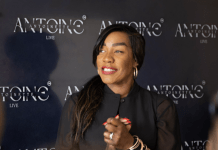The world in which we live, is vast and ever-changing. According to Joyce Wazirali, we are not just in an era of change, but we are the creators of the cultural evolution that brings about change. Joyce shares her story of becoming a successful CEO and author, who advocates for personal growth and group development.
“Our growth is an interdependent process of interacting with others, with the intention of fostering mutual growth.”
At the age of ten, you moved from your birth country of Suriname to the Netherlands. Were there any similarities or differences, in the cultural environment, which influenced who you are today?
The most important condition for integrating into a new culture is speaking the same language. At the time we moved to the Netherlands, Suriname was a colony of the Netherlands. That is why we already spoke the Dutch language. This is one of the similarities.
Two big differences were the weather and hospitality.
Firstly, the switch from a tropical environment, in the Amazon, to the four seasons in the Netherlands was a huge step. Luckily, we can dress for the weather. I had never seen snow and ice before. It was magical to experience that. And it still is.
Secondly, people in Suriname do not make appointments when they want to visit. They are very welcoming. Wherever you go, the host expects you to eat with them. They will even be offended if you refuse. That is why we always have leftovers. I still have this habit and give food to older friends who are single and cannot cook due to circumstances.
In the Netherlands, some people, mostly my friends, are also hospitable. The majority prefer to make an appointment in advance to visit, especially if you are coming for dinner, but I do not mind.

Being born and raised in a multicultural environment has made me resilient and adaptable to change. This has greatly contributed to who I am today.
After 6 years working as a Clinical Chemical Analyst, you decided to co-find the Plasa Group and work as a director, coach, and counsellor. What drove you to change your career path?
Although I loved my job and had great colleagues, there were several reasons why I changed my career path. After working in the hospital lab for a few years, I ended up doing routine work and had no opportunities to grow in my career, and I started to have health problems. The night shifts were tough. Working long hours alone, too little time to sleep and eat, and no one to tell your story to after a traumatic night shift.
We were also working with some chemicals in an unprotected environment. Somehow, I knew that one of those chemicals was carcinogenic. I followed my gut feeling and used that chemical in a protected environment.
After I resigned, they changed the working hours of the night shifts, and we were no longer allowed to work alone. Three decades later, scientists discovered that the chemical I believed to be a carcinogen, had already affected people in another work environment who had to work with a diluted amount of that chemical.
My father and my ancestors were all entrepreneurs, so it was a logical step for me to start my own business.

Since 1988, you have guided people and organisations on their journey of leadership development and cultural change. How important are these processes, regarding running a successful business?
Leadership development and cultural change revolves around people and relationships. The dynamics of relationships are too complex to understand in an effortless way. Culture change is therefore a complex process. The people in organisations are not only part of the culture, but they are also the creators of the culture.
You can see an organisation as a living system in which all parts, i.e., people, are interconnected, interdependent and continuously influence each other. The healthier and more harmonious the relationships are, the better the people in the organisation can perform.
As the co-founder and CEO of a successful business services company, I have the experience to grow a company with two co-founders into a company of 80 employees within 13 years. Our customers and employees were our biggest ambassadors.
One of the success factors was leadership development and culture change, from the perspective of Unity Conscious Leadership®. According to Unity Conscious Leadership®, everyone is a leader. You do not have to be a CEO to be a leader. That is why it is important to develop personal leadership for everyone in the organisation.
As a woman who previously worked in a scientific field, what advice would you give to young girls who are interested in STEM? What inspired you initially to become a clinical chemical analyst?
My advice to young girls interested in STEM: if it is your talent, follow your heart. That is what I did. I have always made my choices by doing the things I’m good at. It gives me energy and a happy feeling. That is how I know I’m on my mission.
As a young girl, I always wanted to work in a hospital, and health was and still is one of my core values. Analysing blood, and other bodily fluids, with the microscope and doing all kinds of tests, was a world in which I found myself in a wonder.
At the same time, I felt humbled when it came to the complexity of the human body and the technology available for diverse types of research.

Throughout the many paths you have taken in life, you have acquired a vast amount of knowledge regarding what makes people and organisations “healthy and happy.” What main factors did you find that had a positive impact on people and their businesses?
We all carry our experiences and burdens from our ancestral past. When we find ourselves in a situation, we are unconsciously triggered, and we react as if we are experiencing the situation from the past. If the prior experience was bad, the situation will evoke a toxic feeling.
Experience shows that toxic relationships are often the cause of health problems, affecting a person’s feeling of happiness and their sense of inner peace. This also applies to relationships within organisations. Toxic relationships within organisations does not only affect the health of the people within the organisation, but also the culture and customers’ base.
We, as humans, are all interconnected, interdependent, and influencing each other continuously. Our environment reflects our inner world, and all answers and solutions are already within ourselves. Our growth is an interdependent process of interacting with others, with the intention of fostering mutual growth.
While we enter relationships, it is important to view all of them as fertile ground for growth, development, maturation and strengthening of our own character. The self-actualisation (expressing the need to make optimum use of opportunities, to get the best out of ourselves) that we undergo in a good relationship is what makes us happy, rather than the relationship itself.
This kind of growth and emotional development is called a human revolution. An inner transformation, through personal development.















